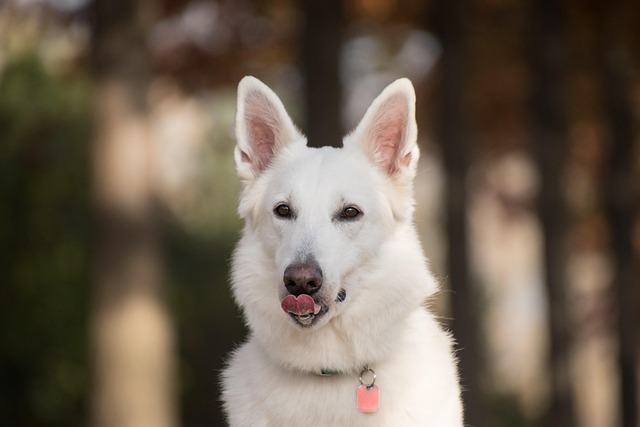
Are Irish setters easy to potty train?
When the Irish setter walks with an elegant pace, its reddish-brown hair shines in the sun, and its lively eyes are full of curiosity and enthusiasm, anyone will be attracted by this unique charm.
With their lively postures and loyal eyes, dogs can always effortlessly win our hearts and become an indispensable part of the family. However, the problem of dogs barking sometimes really troubles their owners. In the early morning, when you are still sound asleep, you are suddenly awakened by a sharp bark. When guests come to visit, the dog barks continuously at them, making the situation rather awkward. Thus, a question that lingers in the minds of many owners emerges: Can dogs be trained not to bark excessively? The answer is yes. As long as we master the correct methods and invest enough patience and love, dogs can definitely learn to be quiet at the appropriate moments.
Dogs bark as a way to express their emotions and needs, just like humans communicate with language. Understanding the reasons why dogs bark is the key to solving this problem. Some dogs bark out of vigilance towards unfamiliar environments or strangers. When they sense that unfamiliar people or animals are approaching the territory they consider their own, they will bark to issue a warning and try to scare away the "intruders". For example, when the deliveryman knocks on the door, the dog may bark loudly at the door because it doesn't recognize this person. There are also some dogs that bark to attract their owners' attention when they feel lonely, anxious, or bored. Dogs that are left alone at home for a long time often bark continuously due to the lack of companionship and stimulation, as if they are crying out, "Master, come back and play with me quickly!" In addition, when dogs feel pain or physical discomfort, they will also use barking to convey their suffering. For instance, if a dog gets injured accidentally or contracts a certain disease, the discomfort in its body will make it emit a different kind of bark than usual.
 Now that we know the reasons why dogs bark, how can we train them to reduce unnecessary barking? First of all, establishing good communication and trust is the foundation. On a daily basis, owners should spend more time with their dogs, play and interact with them, and give them sufficient love and strokes. When dogs feel the full love from their owners, they will trust their owners more and be more willing to follow their commands. During the training process, scientific methods should be adopted. For example, when a dog starts barking at the sight of a stranger, the owner can use a gentle but firm tone to give the command "be quiet", and at the same time, gently stroke the dog's head or body to calm it down. Once the dog stops barking, a reward should be given immediately. It can be its favorite treat, or enthusiastic praise and an affectionate hug. Through this repeated training, let the dog understand that it will get a reward if it obeys the command "be quiet" and stops barking.
Now that we know the reasons why dogs bark, how can we train them to reduce unnecessary barking? First of all, establishing good communication and trust is the foundation. On a daily basis, owners should spend more time with their dogs, play and interact with them, and give them sufficient love and strokes. When dogs feel the full love from their owners, they will trust their owners more and be more willing to follow their commands. During the training process, scientific methods should be adopted. For example, when a dog starts barking at the sight of a stranger, the owner can use a gentle but firm tone to give the command "be quiet", and at the same time, gently stroke the dog's head or body to calm it down. Once the dog stops barking, a reward should be given immediately. It can be its favorite treat, or enthusiastic praise and an affectionate hug. Through this repeated training, let the dog understand that it will get a reward if it obeys the command "be quiet" and stops barking.
In addition to training for specific situations, increasing the dog's amount of exercise can also reduce barking. Many times, dogs bark to consume energy because they have excessive energy but no suitable way to release it. Taking the dog for an appropriate amount of walking and playing every day, allowing them to run freely outdoors, can not only meet their need for exercise but also make them more willing to rest quietly after getting tired. For example, a dog that can play to its heart's content every day will bark significantly less frequently than a dog that is cooped up at home all day.
During the process of training dogs not to bark excessively, the patience and perseverance of the owners are of vital importance. Dogs need time to learn. They may not immediately understand their owners' intentions or follow their owners' requests right away. At this time, owners must never scold or beat their dogs because of their "disobedience". Scolding and beating not only fail to solve the problem but also make the dogs feel scared and confused, intensify their uneasiness, and lead to more frequent barking. Owners should always remain calm and patient, repeat the training time and time again, and guide the dogs in a gentle way. Every time the dog makes progress, even if it's just a slight reduction in the barking time, the owner should give timely affirmation and rewards.
Positive reinforcement plays a significant role in dog training. Dogs are very intelligent animals and can keenly sense their owners' emotions and attitudes. When they receive rewards for their good behavior, they will be more motivated to repeat that behavior. Besides treat rewards, the owners' praise, strokes, and companionship are all very precious rewards for dogs. For example, after a dog successfully stops barking upon hearing the command "be quiet", if the owner smiles and says "You're so great" to it and gently strokes its belly, the dog will feel recognized and loved from these actions of the owner and will be more willing to cooperate with the owner's training.
Dogs can be trained not to bark excessively. This requires owners to have an in-depth understanding of the reasons why dogs bark, use scientific training methods, and give dogs enough patience, love, and positive reinforcement. During this process, the emotional bond between us and our dogs will also become stronger. Just imagine that when the home is no longer troubled by the dogs' meaningless barking but is filled with warm scenes of harmonious coexistence between the dogs and their owners, what a wonderful picture that will be. Let's work together, using love and patience to help dogs learn to be quiet at the right time and make them more polite and popular family companions.

When the Irish setter walks with an elegant pace, its reddish-brown hair shines in the sun, and its lively eyes are full of curiosity and enthusiasm, anyone will be attracted by this unique charm.

When the furry little life stumbles into our lives, the soft and sticky cry and wagging tail instantly melt the hearts of countless dog owners. However, behind this sweet companionship, puppy potty training is like a mountain in front of them.

In the steel jungle of the city, more and more people are eager to have a furry companion to add more warmth and companionship to their lives.

Training puppies to develop good house bowel habits is a process that every pet owner looks forward to and is full of challenges. This is not only about the cleanliness of the home environment,

Dog walking is supposed to be a pleasant time for people and dogs to enjoy each other's company, but when the dog drags the leash and rushes around, this beautiful moment is broken.

When a dog suddenly poops in a specific area of the house, it not only causes cleaning troubles but also makes the loving owner feel anxious and helpless.